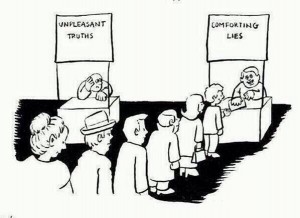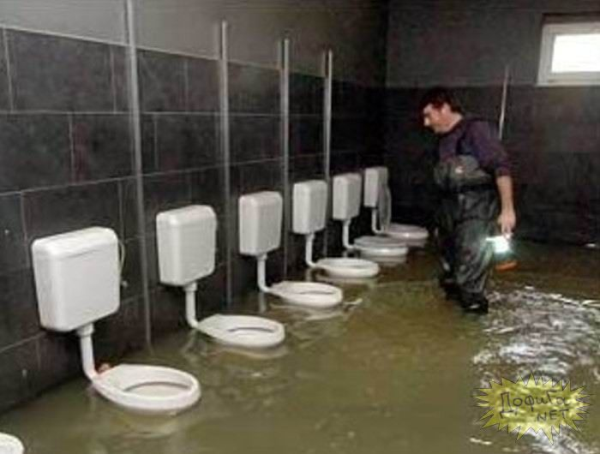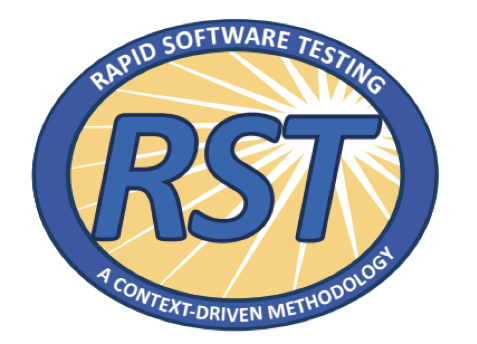 Dutch version is here
Dutch version is here
People perceive me as extremely confident. One of my personal mentors once said: “you are fearless”. That is only the outside. Inside I am soft and insecure like most people are. I have fears, quite a few to be honest. My behavior and my inside weren’t congruent.
In my life, I like challenges and when I want something, I go for it. In those cases my determination and will to learn or to achieve something are just bigger than the fear of failing. Personal leadership is important in my life. I am trying to become a better version of myself every day. I want to be an even better person. My passion and energy in combination with being a fighter brought me where I am today. But it had a lot of “collateral damage”. Since my youth I have been struggling with depression, low self esteem and restlessness. Over time I got much better in dealing with them. But I still suffer from burn-out and depression complaints and mental health issues once in a while. My pitfalls are: fighting all the time, pushing people too much, going in debates to win, not able to turn myself off. In September 2019 I started a new episode in my life: I started working with Bureau Idee in Haarlem after an anxiety attack. Working with Peter Spelbos was like coming home. He helped me reflect and made me aware of aspects of myself that I have known for long, but never realized the impact of my thoughts and inner beliefs on my behavior and mental health.
On one hand, I am someone who is always ready to help others. A good and dear friend who is very good at his job. On the other hand I am afraid of many things because of my fear of failure in combination with perfectionism. Having a low self-esteem drains energy because you have to deal with the fact that you care about what others think of you. I see patterns where I put on a mask and hide my real self. Another personal mentor told me that “I am good at breaking down the walls of others and with those stones making my own wall higher and stronger”. I find it difficult to make myself vulnerable. I also see a pattern of running away from problems when it gets too difficult. My head is full of negative thoughts, all the time.
But I am dealing with them. Together with my therapist I gained deeper knowledge about myself, my inner beliefs and he helped me reflect on what to work on. He helped me to take matters into my own hands. By writing this, I feel strong and confident that I will overcome my issues and become a better version of myself. I am already reaping the fruits of my efforts.
As a coach, I teach people that vulnerability and self-reflection is important. By sharing this, I want to be a role model and show that having mental issues is okay as long as you work on them. Being vulnerable is nothing to be ashamed of; it is a super power. I believe that personal leadership and collaboration ultimately makes the difference in work and in your personal life. Mindset is the most important thing to become the best version of yourself. Vitality is key in that! To do the best work and to live the best life, physical and mental health are important and they are directly related! I learned that I need to become mentally strong by being less aggressive and more assertive (have a look at this awesome video). I started guarding my limits and borders, reasoning from my position and being less judgemental, becoming a better listener, being more humble and thankful, started meditating and practicing tolerance. I found a lot of inspiration in the Dutch book “Master your mindset” by Michael Pilarczyk.
I am mastering my mindset. I am dealing with it! It feels good and it makes me feel strong.
Watch your thoughts, they become your words
Watch your words, they become your actions
Watch your actions, they become your habits
Watch your habits, they become your character
Watch your character, it becomes your destiny
― Lao Tzu
Meester over je gedachten (Master your Mindset)
 Mensen ervaren mij als extreem zelfverzekerd. Een van mijn persoonlijke mentoren zei ooit: “je bent onbevreesd”. Dat is alleen de buitenkant. Binnen ben ik zacht en onzeker zoals de meeste mensen. Ik heb angsten, nogal wat om eerlijk te zijn. Mijn gedrag en mijn binnenkant waren niet congruent.
Mensen ervaren mij als extreem zelfverzekerd. Een van mijn persoonlijke mentoren zei ooit: “je bent onbevreesd”. Dat is alleen de buitenkant. Binnen ben ik zacht en onzeker zoals de meeste mensen. Ik heb angsten, nogal wat om eerlijk te zijn. Mijn gedrag en mijn binnenkant waren niet congruent.
In mijn leven houd ik van uitdagingen en als ik iets wil, ga ik ervoor. In die gevallen zijn mijn vastberadenheid en wil om iets te leren of te bereiken gewoon groter dan de angst om te falen. Persoonlijk leiderschap is belangrijk in mijn leven. Ik probeer elke dag een betere versie van mezelf te worden. Ik wil een nog beter persoon zijn. Mijn passie en energie in combinatie met de straatvechter in mij, brachten me waar ik nu ben. Maar het had veel “bijkomende schade”. Sinds mijn jeugd heb ik te kampen met depressies, een laag zelfbeeld en rusteloosheid. Na verloop van tijd wist daar ik steeds beter mee te dealen. Maar ik heb nog steeds af en toe last van burn-out en depressie klachten en daardoor psychische problemen. Mijn valkuilen zijn: de hele tijd vechten, mensen te veel pushen, debatten aangaan om te winnen, mezelf (mentaal en lichamelijk) niet kunnen uitschakelen. In september 2019 begon ik een nieuw tijdperk in mijn leven: ik begon te werken met Bureau Idee in Haarlem na een angstaanval. Werken met Peter Spelbos was als thuiskomen. Hij hielp me nadenken en maakte me bewust van aspecten van mezelf die ik al lang ken, maar nooit de impact van mijn gedachten en innerlijke overtuigingen op mijn gedrag en mentale gezondheid besefte.
Aan de ene kant ben ik iemand die altijd klaar staat om anderen te helpen. Een goede en dierbare vriend die heel goed is in zijn werk. Aan de andere kant ben ik bang voor veel dingen vanwege mijn faalangst in combinatie met perfectionisme. Het hebben van een laag zelfbeeld verspilt energie omdat je je druk maakt om wat anderen van je denken. Ik zie patronen waar ik een masker op zet en mijn echte zelf verberg. Een andere persoonlijke mentor vertelde me dat “ik goed ben in het afbreken van de muren van anderen en met die stenen mijn eigen muur hoger en sterker maak”. Ik vind het moeilijk om mezelf kwetsbaar op te stellen. Ik zie ook een patroon van weglopen van problemen wanneer het te moeilijk wordt. Mijn hoofd is altijd vol met negatieve gedachten.
Maar ik ben ermee aan de slag gegaan. Samen met mijn therapeut heb ik diepgaande kennis over mezelf en mijn innerlijke overtuigingen ontdekt. Hij heeft me geholpen na te denken over waar ik aan moest werken. Hij hielp me het heft in eigen handen te nemen. Door dit te schrijven, voel ik me sterk en zelfverzekerd dat ik mijn problemen zal overwinnen en een betere versie van mezelf zal worden. Ik pluk nu de vruchten van mijn inspanningen.
Als coach leer ik mensen dat kwetsbaarheid en zelfreflectie belangrijk zijn. Door dit te delen, wil ik een rolmodel zijn en laten zien dat het hebben van mentale problemen prima is zolang je eraan werkt. Kwetsbaar zijn is niet iets om je voor te schamen; het is een superkracht. Ik geloof dat persoonlijk leiderschap en samenwerking uiteindelijk het verschil maakt in werk en in je persoonlijke leven. Mindset is het belangrijkste om de beste versie van jezelf te worden. Vitaliteit staat daarbij centraal! Om het beste werk te doen en het beste leven te leiden, is fysieke en mentale gezondheid belangrijk en die zijn direct aan elkaar gerelateerd! Ik heb geleerd dat ik mentaal sterk kan worden door minder agressief en meer assertief te zijn (bekijk deze geweldige video). Ik begon mijn grenzen te bewaken en aan te geven aan anderen, vanuit mijn eigen positie te redeneren en minder oordelend te zijn, een betere luisteraar te worden, nederiger en dankbaar te zijn, begon te mediteren en tolerantie te oefenen. Ik vond veel inspiratie in het Nederlandse boek ‘Master your mindset‘ van Michael Pilarczyk.
Ik ben bezig om mijn mindset te trainen. Ik werk aan mijn manier van denken! Het voelt goed en ik voel me sterk.
Let op je gedachten, ze worden je woorden
Let op je woorden, ze worden je acties
Let op je acties, ze worden je gewoontes
Let op je gewoonten, ze worden je karakter
Let op je karakter, het wordt je bestemming
- Lao Tzu



 I push back! Of course I do not run away from a project when I see or smell bad work. I do try to tackle the challenges I am faced with. I use three important ways trying to change the situation: my courage, asking questions and my ethics. Some examples: when a managers start telling me what I should do and explicitly tell me how I should do that, I often ask how much testing experience the manager has. When given the answer I friendly tell him that I am very willing to help him achieve his goals, but that I think I am the expert and I will decide on how I do my work. Surely there is more to it and I need to be able to explain why I want it to be done differently.
I push back! Of course I do not run away from a project when I see or smell bad work. I do try to tackle the challenges I am faced with. I use three important ways trying to change the situation: my courage, asking questions and my ethics. Some examples: when a managers start telling me what I should do and explicitly tell me how I should do that, I often ask how much testing experience the manager has. When given the answer I friendly tell him that I am very willing to help him achieve his goals, but that I think I am the expert and I will decide on how I do my work. Surely there is more to it and I need to be able to explain why I want it to be done differently. pares these tasks to the testing activities according to TMap. In this part of his talk he covers the role description, tasks in testing and its importance to the tester. Then he talked about the developments in the testing profession covering developments in approach, the testing craft itself and the systems under test. The latter coincided with the theme of this event “The Cloud”. In the last part of his talk Leon gives his view on the impact of these developments on the role of a test manager. I have summarized them in the table below.
pares these tasks to the testing activities according to TMap. In this part of his talk he covers the role description, tasks in testing and its importance to the tester. Then he talked about the developments in the testing profession covering developments in approach, the testing craft itself and the systems under test. The latter coincided with the theme of this event “The Cloud”. In the last part of his talk Leon gives his view on the impact of these developments on the role of a test manager. I have summarized them in the table below.

Recent Comments